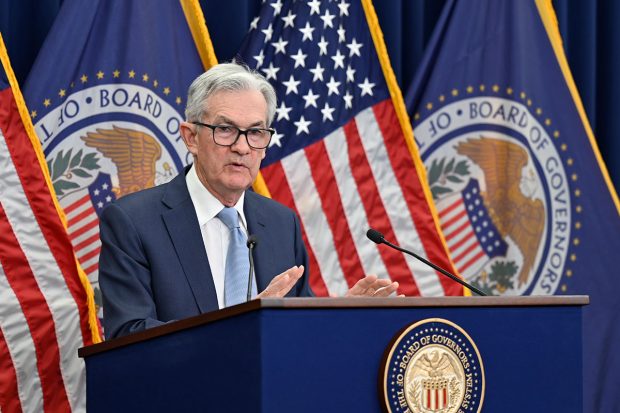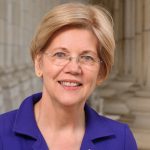Economist Curt Long says the Fed will likely wait to see the effects of recent bank failures instead of raising rates Wednesday.
 Jerome Powell speaking a news conference Wednesday, Dec. 14, 2022 (Source: Federal Reserve).
Jerome Powell speaking a news conference Wednesday, Dec. 14, 2022 (Source: Federal Reserve).
NAFCU Chief Economist Curt Long said Monday he expects the Fed will hit pause on its 12-month run of interest rate hikes Wednesday to gauge the effects of instability among banks here and abroad.
Long said most economists still expect the Fed will raise rates 25 basis points. “My expectation is the Fed will pause to let the dust settle … given what they’ve seen in the last few weeks,” he said.
What they’ve seen so far are the failures of Silicon Valley Bank and Signature Bank earlier this month, the instability at First Republic Bank of San Francisco and Sunday’s proposed buyout of troubled Credit Suisse by another large Swiss bank.
Before those troubles, some economists had predicted the Fed might raise rates as much as 50 basis points, and as recently as March 14, NAFCU economist Noah Yosif predicted the Fed would go ahead with a 25-bps hike in the wake of a report showing only a small drop in the inflation rate in February.
 Curt Long
Curt Long
Long said if he’s wrong, “a quarter point in one meeting isn’t going to move the needle too much” on the nation’s economy. However, he said, “pushing the pause button at this meeting makes the most sense.”
Sen. Elizabeth Warren (D-Mass.) said on CBS’ “Face the Nation” Sunday that much of the trouble stemmed from a loosening of Dodd-Frank regulations under President Trump. She called on Congress to reinstate those regulations, and for the FDIC to raise its insurance threshold from its current $250,000 per account to perhaps $2 million to $10 million.
 Sen. Elizabeth Warren
Sen. Elizabeth Warren
”It is one of the options that’s got to be on the table right now,” Warren said. “Small businesses need to be able to count on getting their money to make payroll, to pay the utility bills. Non-profits need to be able to do that. These are not folks who can investigate the safety and soundness of their individual banks. That’s the job the regulators are supposed to do.”
Greg Mesack, NAFCU’s SVP of government affairs, said the trade group would want the threshold for NCUA’s Share Insurance Fund to be the same as the FDIC’s. He said the group is talking to its members about the issue, but doesn’t yet have a number for the amount of an increase, if any, it would support.
 Greg Mesack
Greg Mesack
Mesack pointed out that 90% of credit union deposits are already under the $250,000 limit, and raising the limit would require credit unions to pay higher fees to support the insurance fund. “Credit unions are safe and sound,” and not facing the same issue as the banks, he said.
Regulators seized control of Silicon Valley Bank of Santa Clara, Calif., March 10, and Signature Bank of New York March 12. Silicon Valley had $209 billion in assets as of Dec. 31, and its loans were concentrated among venture capital funds and technology startups. Signature, which had $110 billion in assets as of Dec. 31, had catered to cryptocurrency companies.
FDIC data showed that 94% of Silicon Valley’s $161.5 billion in deposits was uninsured, and Signature had 90% of its $88.6 billion in deposits uninsured.
In the wake of those failures, the U.S. Treasury Department, the Fed and the FDIC announced March 12 they were covering all deposits at the two banks, including those exceeding the $250,000 limit. Their joint statement said the Fed “will make available additional funding to eligible depository institutions to help assure banks have the ability to meet the needs of all their depositors.”
The banking crisis spread overseas and UBS of Switzerland on Sunday agreed to buy rival Credit Suisse for $3.2 billion. Also Sunday, the Fed along with central banks of Canada, England, Japan, Switzerland and the European Union announced a “coordinated action to enhance the provision of liquidity via the standing U.S. dollar liquidity swap line arrangements.”
Monday started shakily for First Republic Bank of San Francisco. Despite a $30 billion cash infusion from large U.S. banks last week, its stock price fell sharply, and the New York Stock Exchange paused trading several times. First Republic had $212.6 billion in assets as of Dec. 31 and 68% of its $176.4 billion in deposits were uninsured.
Comments
Post a Comment
Please no profanity or political comments.